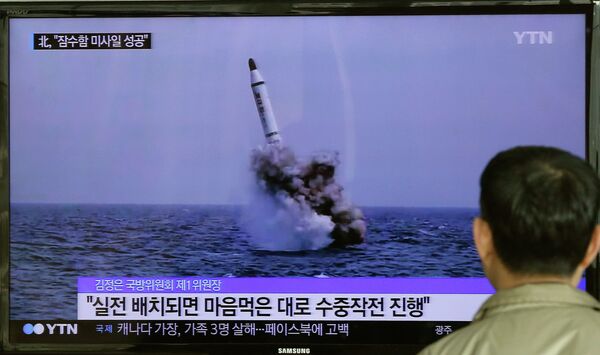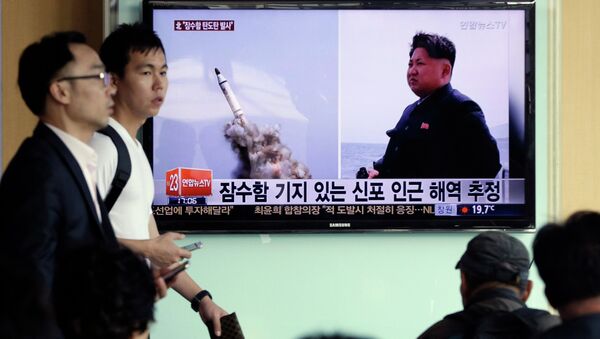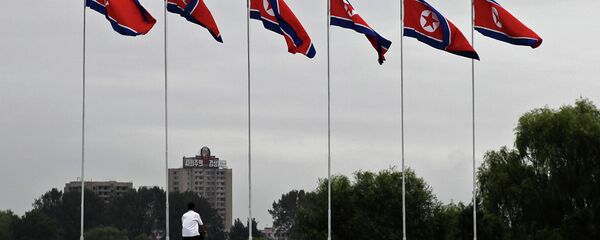"The North Korean nuclear arsenal is a defensive, containing force needed to withstand the US nuclear threat and the threat of military aggression our county continuously experiences,” the country’s Central News Agency reported, quoting a Foreign Ministry statement.
Pyongyang believes Washington is earnest in its preparations for war with North Korea, which it has demonstrated by preparing for the deployment of an advanced air defense system, Terminal High-Altitude Area Defense (THAAD), on the Korean Peninsula.

North Korean authorities refuted Washington’s claims that Pyongyang refuses to participate in negotiations on its nuclear program. The Foreign Ministry believes that it is the US which impedes the dialogue by putting forward numerous preconditions.
The Foreign Ministry adds that Washington does not have any right to criticize Pyongyang for boosting its military potential for the purpose of self-defense.
The top nuclear envoys from South Korea, the United States and Japan agreed Wednesday on the need to increase pressure on North Korea and urged the country to engage in serious negotiations on its expanding nuclear weapons program.
The one-day meeting in Seoul followed a recent North Korean claim that it had tested a new type of missile from a submarine and a reiteration that it had built a nuclear warhead small enough to be fitted on a long-range missile.
A representative from the country’s National Defense Commission then said that the country has in its possession “dense and multifarious” armaments and that “nobody is able to prevent North Korea from defending itself with the help of its nuclear arsenal”.
The operation began in tandem with the now-famous Stuxnet attack that sabotaged Iran's nuclear program in 2009 and 2010 by destroying a thousand or more centrifuges that were enriching uranium. The attack on Iran was reportedly a joint effort by US and Israeli forces.
According to one US intelligence source, Stuxnet's developers produced a related virus that would be activated when it encountered Korean-language settings on an infected machine.
US agents, however, could not access the core machines that ran Pyongyang's nuclear weapons program, said another source, a former high-ranking intelligence official who was briefed on the program.



